Why Choose Striim vs. HVR Software?
Modern, cloud-scale architecture
Intuitive UI
Transform, enrich, and analyze your data on the fly
Fortune 500 companies power their cloud initiatives with Striim






“At UPS, we’re reshaping the shipping landscape by prioritizing lower premiums and improved convenience for our customers. Opting for high-confidence shipping addresses not only slashes costs but also assures customers of dependable and secure deliveries, empowering them to shop online with confidence and ease. Striim and Google Cloud have jointly enabled us to enhance the customer experience with AI and ML.”
Pinaki Mitra
VP of Data Science and Machine Learning at UPS Capital

“Striim is a fully managed service that reduces our total cost of ownership while providing a simple drag and drop UI. There’s no maintenance overhead for American Airlines to maintain the infrastructure.”
Ganesh Deivarayan
Sr. Manager at American Airlines

“Striim gives us a single source of truth across domains and speeds our time to market delivering a cohesive experience across different systems.”
Neel Chinta
IT Manager at Macy's

“One of the most notable benefits we’ve experienced since integrating Striim into our operations has been the significant enhancement in how we communicate with our customers. The real-time updates on order status have not only improved transparency but also helped to reduce the number of customer service calls. This change has streamlined our operations, allowing us to allocate resources more efficiently and improve overall customer satisfaction.”
Oliver Meisch
Manager of Business Intelligence, Kramp

“The choice to use Snowflake was part of our platform’s evolution. We needed Striim to complete the vision.”
Rajesh Raju
Director of Data Engineering

“We have a significant software portfolio and the ability to tie that into modern ML use cases where we need to do that is important for us. We are a highly data-driven organization and the ability to tie in predictive models or propensity models is really critical to our strategy. The objective with Striim and CDC usage was to simplify pipelines and minimize latency for real-time decision support.”
Nick Alexander
Senior System Architect, Discovery Health
Striim vs. HVR Software Feature Comparison
Cloud-Scale Architecture
Striim scales horizontally on in-memory compute with high availability and failover for maximum uptime.
HVR is a single-node solution. Doesn’t scale horizontally. Must be deployed as a virtual machine.
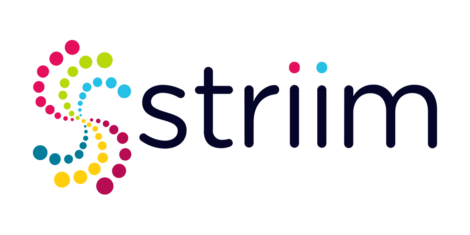

Real-time Transformations + Analysis
Striim users can build detailed in-flight transformations, data masking, filtering logic using high-speed SQL queries. Striim scales horizontally with in-memory compute for high performance transformations.
HVR doesn’t support scalable transformations or data processing.


Real-Time Data Visualization Dashboards
Striim offers real-time dashboards visualizing end-to-end data delivery from source to target. Striim matches source and target transactions and alerts users to missing transactions, making it easy to catch issues as they happen.
Striim offers data delivery SLAs and customers see end-to-end latency under 2 seconds.
HVR also provides in-flight data visualization and validation as well as live end-to-end-latency reports.


Real-Time Data Enrichment
Striim supports data enrichment and normalization using in-memory key-value stores for historic data. This allows you to enrich raw, real-time data with historical aggregates and lookup data.
HVR doesn’t support data enrichment.


Striim offers a modern data platform that's both powerful and easy to use
Simply Data Flows
Select from hundreds of templates to simplify building your data flows. A step-by-step wizard will lead you through the process of connecting to your source and target to create a data flow application. You can also create custom data flows from scratch.
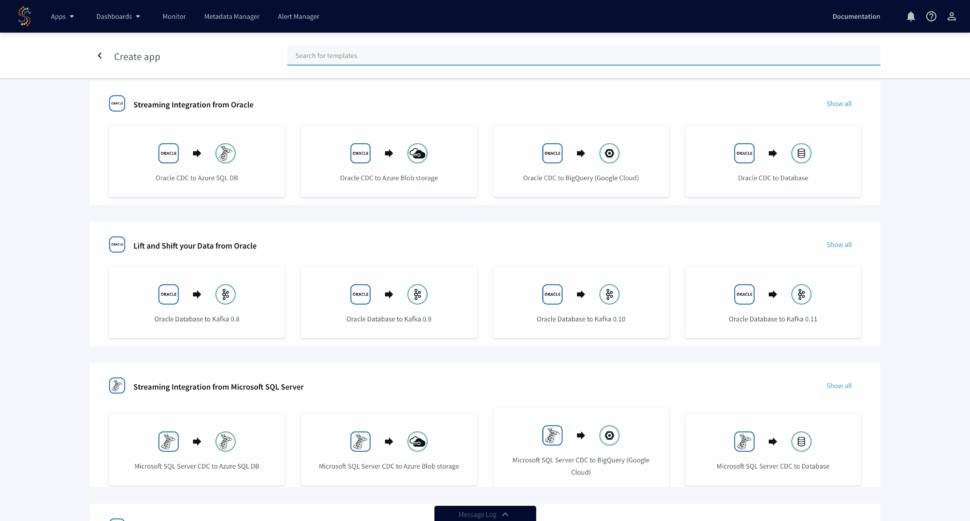
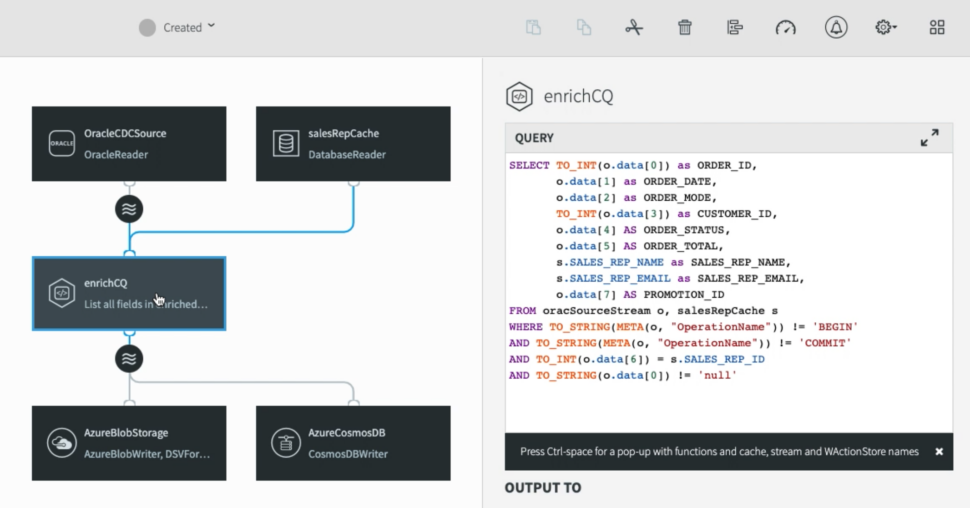
Define and Optimize
Your data flow defines how to collect, process, and deliver data. The simplest data flow just has a source, a stream, and a target. In many cases you will need to perform some processing on your data. Striim enables you to set up continuous SQL queries optimized for streaming, real-time data.
Real-Time Visibility
Our built-in dashboards and monitoring enable you to see the state of your data flows in real-time and easily identify any bottlenecks. Striim can also validate that your data has been delivered and provide visibility into the end-to-end lag. This level of visibility is essential for mission-critical systems that may have SLAs regarding how current the data is.
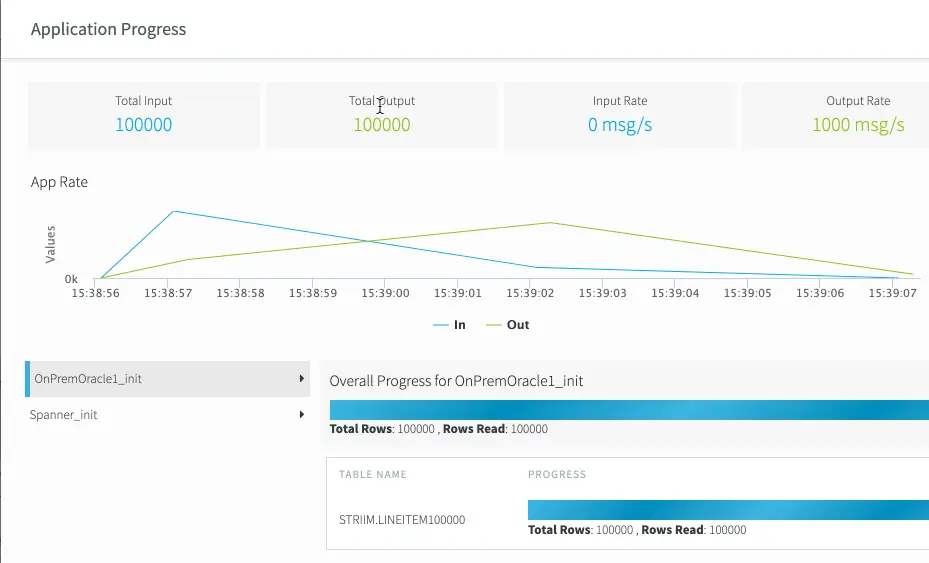
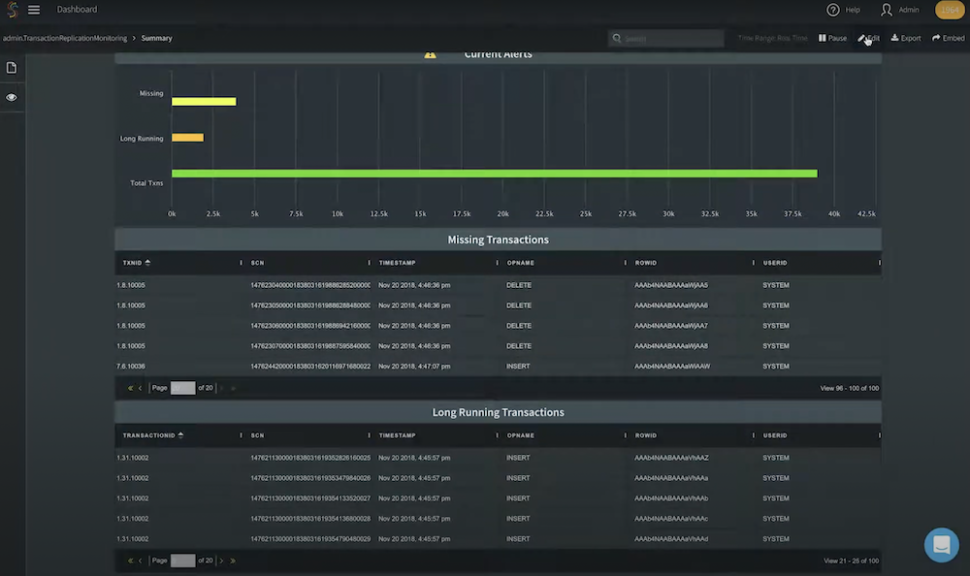
Detailed Metrics for Maximum Performance
You can also drill down on any of the components in a data flow to see detailed statistics that include read/write rate, lag, latency, CPU usage, and many other metrics. This detailed information can help identify any bottlenecks, and aids in tuning data flows for maximum performance and minimal latency.
Automation & Custom Alerts
Striim allows you to define SQL-based custom alerts so you can stay informed about the status and performance of your data flows.
In the case of errors, or failures, you can also automate workflows to perform corrective actions. By tapping into error or status streams you can trigger compensating data flows to start, or perform other actions to remediate problems.
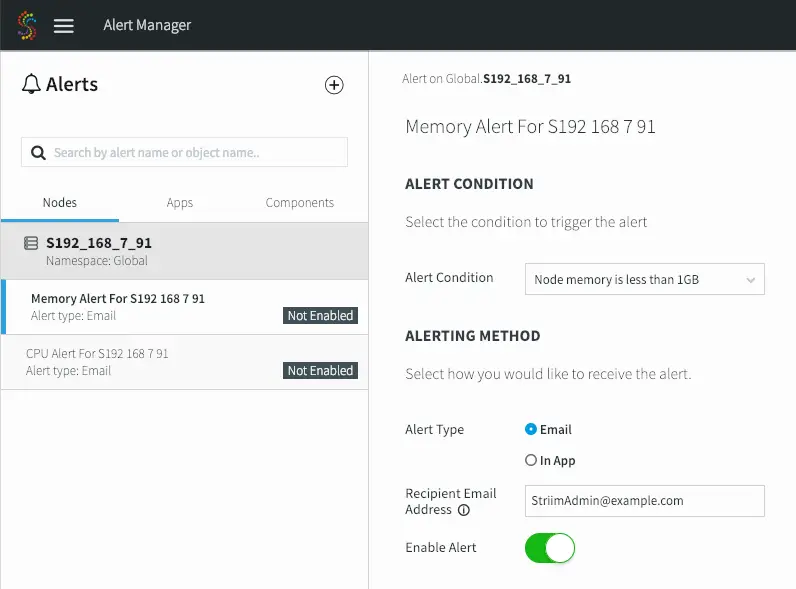
100's of connectors
Select a connector for more information
Helpful how-to guides
We've prepared a few articles to help you get started


























